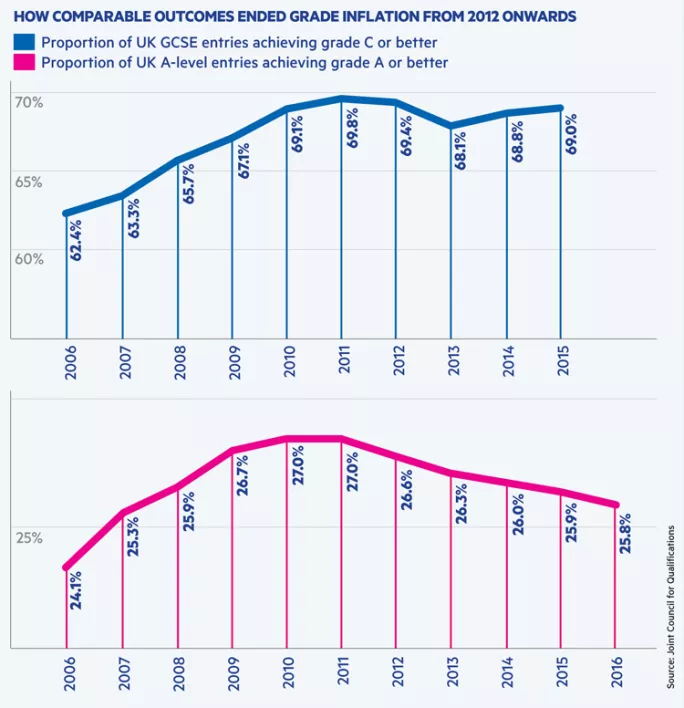The future of a new pupil performance test - which could have ended the effective national freeze on significant increases in exam grades - is in the balance, TES can reveal.
Exams regulator Ofqual is poised to announce whether a new “national reference test” (NRT) - which could be used as a justification for allowing major rises in GCSE grades to begin again - will go ahead from next year.
But TES has spoken to expert advisers to Ofqual, who have raised serious technical problems with the NRT.
Rebecca Allen, director of the research group Education Datalab and a member of Ofqual’s standards advisory group, said: “I would not be surprised if the national reference test is dropped.
“Many are concerned that it is not going to be able to do the job it’s designed to do.”
And exam boards are understood to be split over whether the project should continue. Ofqual’s decision will be crucial for schools because an NRT that works as planned could mean an end to the strict statistical limits on national rises in GCSE grades, making it easier to hit government targets.
The regulator announced in 2014 that the new NRT would be introduced across England in 2017. But after a trial by 300 schools in March, it is now deciding whether or not it should go ahead - and it is said to be “increasingly non-committal” about using the test to help set GCSE grade boundaries.
‘Absolutely contradictory’
One exam board source said pressure to bring in the test, or an alternative way of allowing grades to rise nationally, would be high because it was “absolutely contradictory” for the education system to “keep demanding everyone improves grades while at a system level not allowing grades to rise”.
The “comparable outcomes” system used to set GCSE and A-level grade boundaries essentially pegs results at a national level to pupils’ prior attainment in key stage 2 tests (for GCSE results) and GCSEs (for A-level results). In theory, grades are supposed to be able to rise under the system if there is national evidence of improved performance.
The NRT was designed to be able to provide such evidence, as an independent gauge of national improvements in teaching and learning. The impact of the system was emphasised again yesterday as the percentage of A-level entries achieving an A grade or better fell for the fifth consecutive year.
An Ofqual spokesman said: “We will be announcing our next steps in relation to the national reference test in due course.”
This is an edited version of an article in the 19 August edition of TES. Subscribers can view the full story here. To subscribe, click here. To download the digital edition, Android users can click here and iOS users can click here. You can also download the TES Reader app for Android or iOS. TES magazine is available at all good newsagents.
Want to keep up with the latest education news and opinion? Follow TES on Twitter and like TES on Facebook





